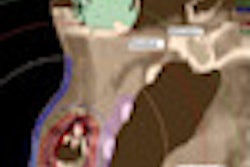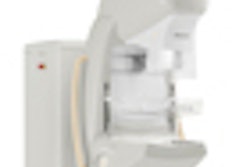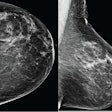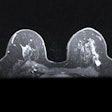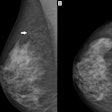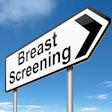Dear AuntMinnie Member,
Full-field digital mammography (FFDM) is better than conventional film-screen mammography for detecting ductal carcinoma in situ (DCIS) lesions -- especially those most likely to be invasive cancer, according to a new study we're highlighting in our Women's Imaging Digital Community.
What's more, the Dutch research team found no evidence that digital mammography increased the detection of low-grade DCIS lesions -- the ones that might never progress to invasive cancer. The latter finding addresses a major criticism of mammography screening: that it contributes to overdiagnosis, or the detection of lesions that might never progress to cancer. Learn more about the study by clicking here.
In other breast imaging news, we've published a couple of new articles this week on the utility of breast MRI. Researchers from the University of Washington found that breast MRI with a combination of diffusion-weighted imaging and dynamic contrast enhancement could reduce false positives and, thus, unnecessary biopsies. Click here to read more.
Finally, researchers from the American College of Radiology's Image Metrix research organization assessed the performance of a dedicated breast MRI scanner, finding that it performed better than a whole-body scanner, particularly by reducing false positives. The study could help address what has historically been an Achilles' heel for breast MRI -- get the rest of the story by clicking here.
Patients want to hear from you
There's been a lot of talk about radiologists moving closer to patients -- in fact, it was a major theme in Dr. Bruce Hillman's keynote talk at our RADExpo 2012 virtual conference last month. Now, an article in the American Journal of Roentgenology offers new evidence that patients like hearing from their radiologists.
Researchers from Harvard Medical School and Beth Israel Deaconess Medical Center surveyed patients on their preferences for communication of their exam results, in particular after they received a consultation from a radiology fellow on the same day the exam was performed.
Nearly all the patients said they felt the consultation was helpful, and almost half said it helped reduce their anxiety over the findings. But is it really practical to offer same-day consultations? Read more about the study by clicking here, or visit our Imaging Leaders Digital Community at leaders.auntminnie.com.






